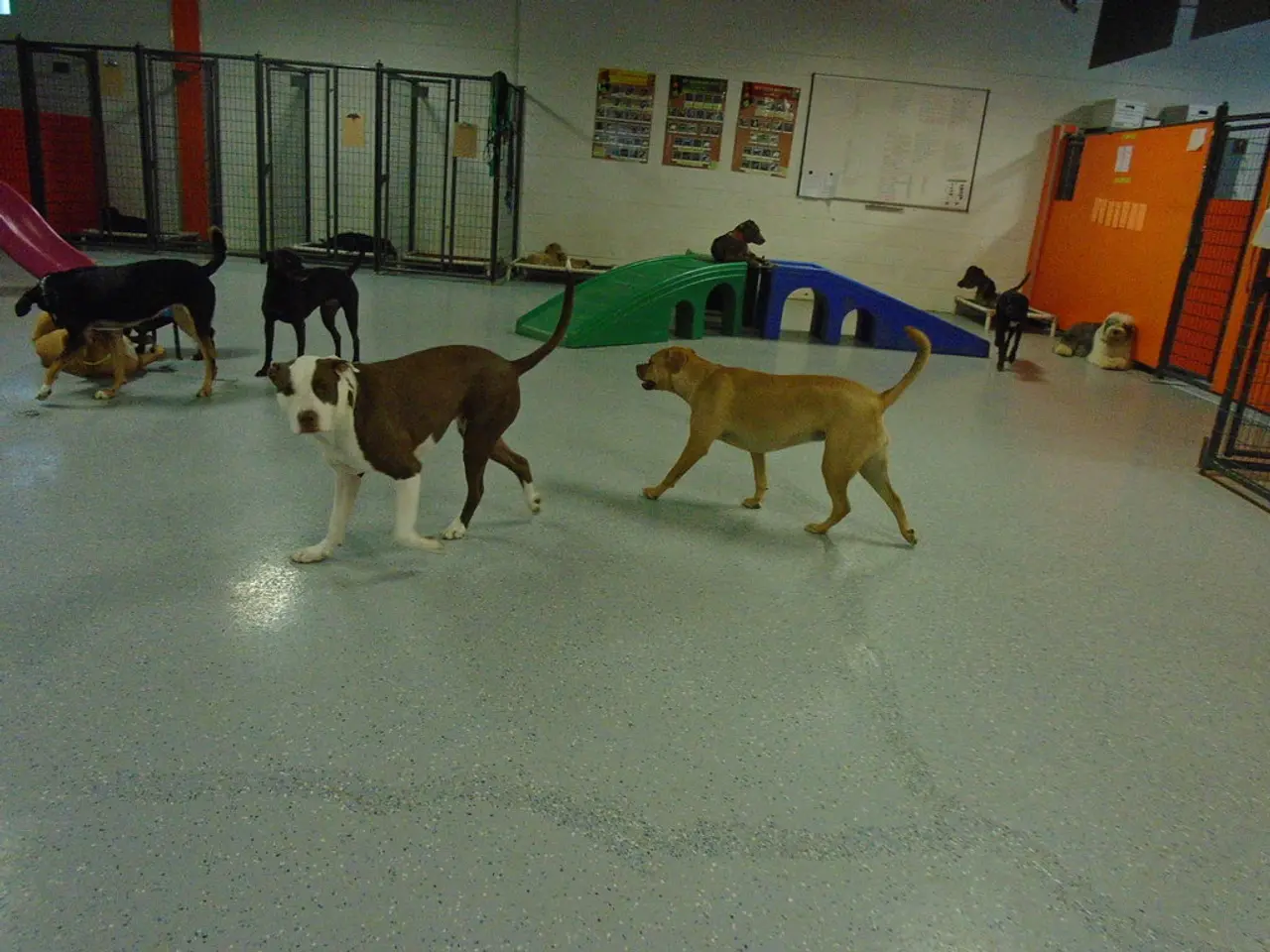Concerned about your dog's emotional wellbeing? A trainer discloses an astonishing cause for their fear or anxiety (along with advice for addressing it)
Overcoming Learned Helplessness in Dog Training
Learned helplessness is a distressing condition that can affect dogs, much like it does humans. This condition occurs when a dog is exposed to repeated unavoidable aversive stimuli, such as painful or unpleasant corrections, which it cannot escape or control. Over time, the dog stops trying to avoid or respond to these negative experiences, becoming passive, frozen in fear, or depressed.
This phenomenon is often a result of the use of positive punishment, such as leash jerks or harsh reprimands, especially when these aversive experiences are unpredictable or uncontrollable by the dog. To avoid this, it's essential to prioritize positive reinforcement training, rewarding desired behaviors rather than focusing on punishment.
In positive reinforcement training, the dog learns that good behavior leads to a reward, building trust and encouraging the dog to learn actively. It's also crucial to avoid or minimize positive punishment and negative punishment that the dog cannot predict or control, as these increase stress and risk of helplessness.
Clear, consistent, and humane corrections that communicate rather than punish can help the dog understand expectations without causing fear or anxiety. It's important to ensure the dog has control and the ability to succeed during training exercises, reinforcing the idea that its actions make a difference, which counters the sense of helplessness.
Supporting the dog's confidence by recognizing progress, providing encouragement, and avoiding overwhelming or inescapable aversive situations can also help. When a dog in a state of learned helplessness stops displaying the unwanted behavior, this is often considered a success in training, but the dog hasn't learned to display good behavior - it's simply learned to give up.
It's essential to be aware of the red flags in dog trainers to avoid aversive training methods. Carolyn Martell, founder of Good Dog Training, provides guidance on this matter. Unavoidable situations like car journeys, vet visits, or flea treatment can potentially be traumatic for dogs. If a dog seems anxious or nervous, it might be due to various reasons, and it's crucial to identify and address these issues promptly.
A dog repeatedly experiencing traumatic events may enter a state of learned helplessness. In such cases, it's essential to provide a safe and predictable environment and seek professional help if necessary. EcoKind Pet Treats Premium Yak Chew, available for $23.36 on Amazon, can help alleviate a dog's anxiety.
In essence, ethical, consistent, and reward-based methods prevent learned helplessness by maintaining the dog's motivation and belief that its behaviors matter. By adopting these methods, we can ensure our dogs are not only well-behaved but also mentally healthy and happy.
- A dog's health and wellness, including its mental health, are significantly influenced by the way it is trained and cared for.
- In pet training, it's crucial to focus on positive reinforcement to reinforce good behavior, rather than using punishment that can lead to learned helplessness.
- Providing treats can help alleviate a dog's anxiety and improve its overall well-being and lifestyle.
- Treating and training pets have a direct impact on the relationships we build with them, and it's essential to choose methods that promote their happiness and well-being.
- Adopting positive training methods can prevent learned helplessness in dogs by maintaining their motivation and belief that their actions make a difference.
- Understanding and addressing issues that cause anxiety in pets is essential for their overall health, as repeated traumatic experiences can lead to learned helplessness.
- The use of toys can provide mental stimulation and help reduce stress in pets, contributing to their overall health and well-being.
- Seeking professional help when dealing with learned helplessness in pets can ensure a safe and predictable environment, which is essential for their recovery and long-term health.




